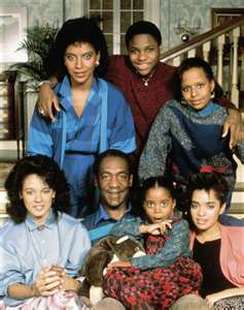
Name: Donnell Hicks
Title: Decline of African-American Television Shows
In the 1950’s and 1960’s, African-Americans weren’t even considered actors or actresses on television shows. There were shows surrounding white America; for example shows like “I Love Lucy,” “Leave it to Beaver,” and “The Mary Tyler Moore Show.” The only way African-Americans were showcased on television was if they were hired as maids or butlers. During that period, most of America was engaged in fighting for justice and equality, primarily for African-Americans.
It wasn’t until the decade of 1970’s when African-Americans broke out into the scene on television starting with the hit dance show created by the late Don Cornelius named “Soul Train;” the show gave all African-Americans a chance to showcase their dance moves and fashion, plus legendary musicians like Gladys Knights and the Pips and The Temptations from Motown were able to promote their music on the live national television in Hollywood, California. For most of our parents who grew up in the 1970’s they can recall the decade as “Black Exploitation,” which featured African-Americans in films as well as television shows. It depicted a widespread movement in America during that era.
There were comedy shows akin to “Sanford and Son” that showed a father and son bonding in a house filled with antique furniture. After that, came the hit popular television show called “Good Times,” created by Norman Lear; the show represented how African-American families living in the projects on the Chicago Southside were able to bond and stick together amid a strong, stern father figure as well as a sympathetic kindhearted mother played by the late Esther Rolle. Lastly, “The Jefferson’s.” George Jefferson played by the late Sherman Hemsely showed African-Americans throughout the country that you can reach your dreams by working hard.
Sanford and Son, Good Times, and The Jefferson’s along with African-Americans playing in films like “Foxxy Brown,” “Shaft,” “Cooley High,” and “Blacula,” showcased that during that period African-Americans were a force to be reckoned with in Hollywood as well as on television. Indeed, Black Exploitation took America by storm in the 1970’s. Moving from the 1970’s into the 1980’s, African-Americans on television were still somewhat dominant with the rise of Bill Cosby’s hit television show “The Cosby Show;” it was a popular show considering the fact you had Claire and Cliff Huxtable portrayed by Phylicia Rashad and Bill Cosby playing a doctor and a lawyer raising their five children in New York. The one thing that made “The Cosby Show” so relevant is the fact that the parents’ never whipped their children but instead made them face the fact of life by giving them choices to make on their own and giving them scenarios to think about life.
As the 1990’s approached, there was a slight decline of African-Americans on television. Certainly there were shows in the early 90’s like “Martin,” “Family Matters,” “Living Single,” and “The Fresh Prince of Bel-Air.” Although those shows kept African-Americans in the spotlight, however, it wasn’t enough as the 1990’s came to a complete close leading into the early 2000’s and beyond. Classic television shows are now replaced by shows that are designed to humiliate African-Americans like “Love and Hip-Hop” and “Housewives of Atlanta.” Sometimes we ask ourselves, where are the classic television shows??? I don’t think there will be another Black Exploitation in the next coming years. For right now, I will enjoy the all-time classic television shows.
 RSS Feed
RSS Feed
